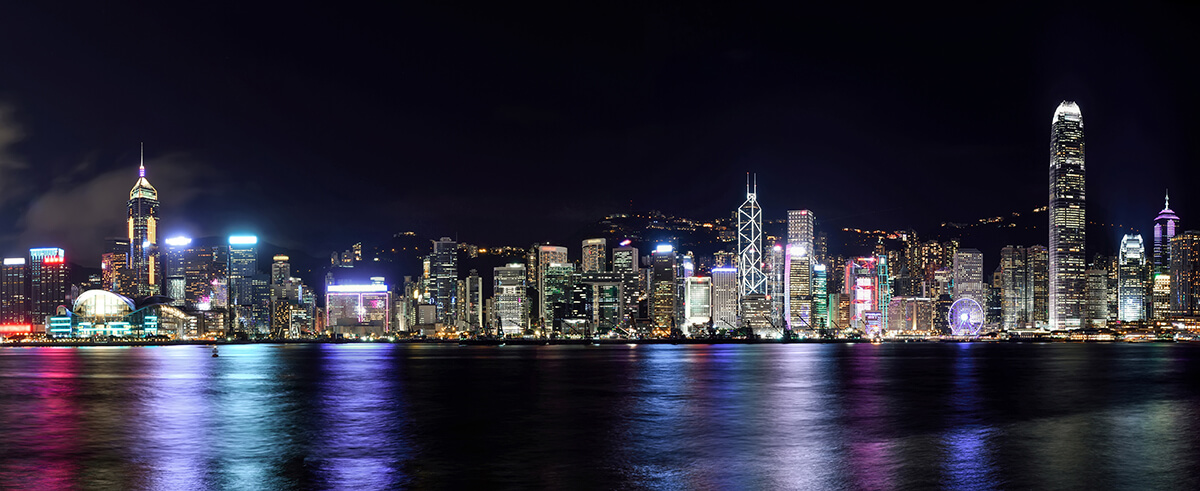
Even luxury hotels in the world’s great metropolises, like Hong Kong, sometimes get it wrong, according to Geoffrey Kent
It’s surprising how often ‘luxury’ hotels get even the simple things wrong and lose precious booking revenue because of some too-common errors, says Abercrombie & Kent Founder Geoffrey Kent
I was 16 years old before I spent the night in a hotel. The Ambassador was one of the grandest hotels in Africa. It was a mecca for travellers who liked to be as comfortable as money could make them. Mr Perfitas, the owner, ensured that his hotel did luxury in the right way. Since then, both as a travel professional and someone who loves adventure, I’ve stayed in hotels, chalets, camps – every type of lodging – on every continent and in nearly every country on Earth. I’ve experienced all the good, the bad and the ugly that hospitality can offer. Here’s how even the top luxury hotels can get the basics of hospitality so very wrong.
Charging extra for wifi
Wifi is frequently the highest rated in-room amenity. Like many businesspeople, I’m on the road for the vast majority of the year. I’m reliant upon technology to allow me to run my business whilst travelling and I don’t want to have to pay additional fees for wifi in hotels. Some hotel brands have even been fined for blocking personal connectivity devices so that travellers are forced to fork out if they want access to the network.
Follow LUX on Instagram: the.official.lux.magazine
Interestingly, hotels at the lower end of the market have always gotten wifi right, guessing that to win business travellers on tight budgets, they’d have to offer complimentary connectivity and it wasn’t unheard of for hotels within the same brand to have differing policies on wifi charges. Thankfully higher-end properties have spent the last few years getting with the programme, and free wifi is becoming de rigueur.
In 2014, the president and CEO of Loews Hotels and Resorts, Paul Whetsell, stated that he didn’t think it was “sustainable to keep charging” for wifi, scrapping the $14.99-20 a day charge his properties had been asking guests to pay.
Hidden fees
Hotels shouldn’t be charging for all the extras: parking fee, resort fee, gym fee, early check-in, late check-out, an energy surcharge, luggage holding, etc., etc. And please don’t get me started on ludicrously expensive buffet breakfasts. The mark-up on granola is enough to suppress even the heartiest appetite.
Complicated in-room lighting systems
In-room lighting systems must be wonderful fun for those with engineering degrees I’m sure, but for the rest of us attempting to find the switch to turn off that one light which defies all efforts to make it go dark is infuriating.
Hotels should also make the lighting smarter to guests’ needs. If feet hit the floor in the middle of the night, chances are someone needs to use the facilities, the lights should illuminate the way subtly without waking all occupants.
Read more: Why you should check into La Réserve hotel, Geneva this spring
Unreliable showers
Over the years, hotel showers have changed for the better. Sea-views, desert-views, glass feature walls, multiple heads, custom-built benches, built-in sound systems, I love that hotel showers now feature tech-savvy touches and that there isn’t a clingy plastic curtain in sight. However, no one wants to stand there alternately freezing and boiling, under a trickle or tidal wave, while they attempt to work out the pressure and heating settings.

A private island resort is less magical with an intrusive butler, according to Geoffrey Kent
Lack of power sockets
There should be easy to access outlets so that guests can charge devices on the bedside table and don’t have to crawl under any furnishings to find a plug. Or, even better, hotels should consider furniture with in-built charging facilities. After all, even Ikea stocks products that contain integrated wireless charging.
Read more: Richemont launches debut watch brand, and it’s sustainable
Intrusive service
Butlers should appear as if by magic to grant my wish for a cold beverage or a hot snack. Having a butler should make a stay feel flawless, not make guests uncomfortable.
Badly stocked (and expensive) mini bars
Mini bars should be stocked with a variety of healthy snacks and guests shouldn’t be charged to restock it (another hidden fee). Many forward-thinking resorts are now making the mini bar contents bespoke, and complimentary – in my view that’s the way forward for luxury.
However, not all properties forget the basic rules of hospitality. Hotels that I believe are exceptionally good include The Peninsula Hotels in Paris and Hong Kong, the Mandarin Oriental New York, and Il Sereno, a new property on the shores of Italy’s Lake Como.
All offer complimentary wireless internet access as standard. The Mandarin Oriental even advertises its free wifi on its Google search page title. A stay at one of these hotels exemplifies how hotels get luxury right, seamlessly.
Read more of Geoffrey Kent’s exclusive columns for LUX here








